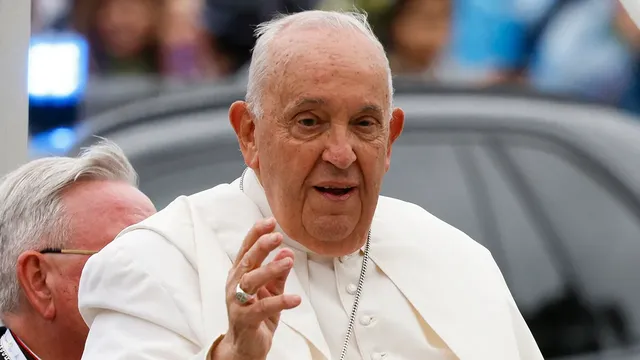
Pope Francis dies at 88, leaving a controversial legacy
2025-04-22 06:00- Pope Francis passed away in April 2025 at the age of 88, marking the end of his influential papacy.
- His leadership was characterized by efforts to reform the Church, promote inclusivity, and address key societal issues.
- His death initiates a critical process for choosing a successor who will shape the Church's future amid ongoing polarization.
Express your sentiment!
Insights
On April 21, 2025, Pope Francis, the Roman Catholic Church leader known for his humble approach and progressive reforms, passed away at the age of 88. His tenure began in 2013 following the resignation of his conservative predecessor, Pope Benedict XVI, amidst significant controversies, including child sex abuse scandals that plagued the Church. Francis sought to decentralize the church and address its opulence, focusing on creating a Church that aligns with the needs of the poor, while also expressing solidarity with marginalized communities. Francis's papacy was both lauded and criticized; he engaged a younger audience while encountering pushback from conservatives within the Church. He navigated delicate issues related to abortion, LGBTQ rights, and capital punishment, with critics arguing that he did not go far enough in addressing pivotal issues, particularly when it came to the clerical abuse crisis. As a pontiff, he aimed to modernize challenges within the Catholic faith but often found resistance due to existing traditionalist beliefs that have strong footholds in various global regions, especially Africa and the United States. Following his death, the selection of a new pope will involve significant deliberation among cardinals, particularly focusing on how to address the polarizing nature of the Church as influenced by Francis's reformative legacy. The conclave will likely consider candidates who reflect the shifting demographics within the Church, especially with an eye on Africa where many of the faithful reside. The next leader will face immense challenges in balancing progressive reforms with the traditional values held by many devoted members worldwide, further complicated by financial stresses facing the Vatican. As the Catholic Church transitions to a new leader, the impact of Francis's policies, as well as his demeanor, will resonate with ongoing discussions regarding the Church’s direction. His death marks not just the end of an era but also the beginning of potential new pathways that may redefine the faith’s approach to societal issues, governance, and interfaith dialogues.
Contexts
Pope Francis has made significant contributions to the Catholic Church since his election in 2013, marking a profound shift in the church's approach to various socio-political and theological issues. His papacy is characterized by a commitment to social justice, interfaith dialogue, and a more inclusive church that embraces the marginalized. By emphasizing these themes, Pope Francis has sought to address the deepening crisis of faith among believers and the broader societal challenges faced by the global community. His annual addresses, encyclicals, and apostolic exhortations have underscored the importance of mercy, compassion, and environmental stewardship as integral components of the Catholic mission. This has transformed not only the church's narrative but also its engagement with world issues, particularly climate change and poverty alleviation. A notable aspect of Francis's influence is his call for a more synodal church, promoting a model of governance that encourages participation from bishops and laity alike. This method of collaborative decision-making has been a departure from the traditional top-down authority structure that has traditionally characterized the Vatican. By advocating for a church that listens and responds to the voices of its members, Pope Francis has opened pathways for greater inclusion, particularly for women and youth within the church. This paradigm shift fosters a sense of belonging and relevance, especially at a time when many are questioning the church's positions on key social issues such as LGBT rights, divorce, and gender equality. Pope Francis has also been a vocal advocate for peace and reconciliation in regions plagued by conflict and violence. His papacy has seen a renewed focus on interfaith dialogue, as evidenced by his historic meeting with leaders from various religions, including Islam and Judaism. By promoting understanding and cooperation between different faiths, he has worked to create bridges in a world fraught with division and hostility. This commitment to peace extends to his stance on migration, where he has consistently urged compassion and hospitality towards refugees and displaced persons, advocating for humane policies that reflect the church's core values of love and solidarity. While Pope Francis’s impact on the Catholic Church has faced resistance, particularly from conservative factions within the hierarchy, his efforts to reform the church and ensure its relevance in the modern world cannot be understated. He has sparked discussion and debate among theologians, clergy, and laypeople regarding the future direction of the church amid changing cultural norms. As his papacy progresses, the lasting effects of his leadership in addressing fundamental issues of justice, equality, and interfaith understanding continue to resonate, suggesting a potential paradigm shift in how the Catholic Church positions itself in a rapidly evolving global landscape.